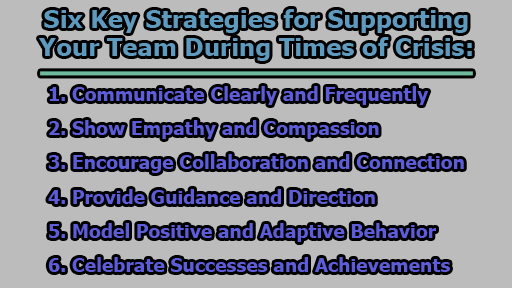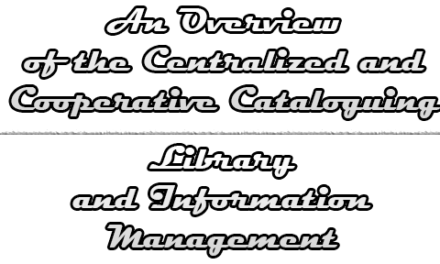Six Key Strategies for Supporting Your Team During Times of Crisis:
In the face of adversity and uncertainty, effective leadership is critical to maintaining a cohesive and resilient team. Leaders have a vital role to play in providing support and guidance to their team members during times of crisis. In this article, we will delve into six key strategies for supporting your team during times of crisis.
1. Communicate Clearly and Frequently: Communication is the bedrock of effective leadership during a crisis. It is essential to keep your team informed and engaged. To do this, leaders should:
- Share relevant information, updates, and decisions with transparency.
- Avoid leaving team members in the dark or allowing rumors to spread.
- Listen to their concerns, questions, and feedback, acknowledging their emotions.
Effective communication builds trust and alignment within the team while reducing anxiety and confusion. It also fosters an environment where team members feel heard and understood.
2. Show Empathy and Compassion: Understanding the diverse needs and emotions of your team members is crucial. Each individual may respond differently to a crisis, and as a leader, it is your responsibility to offer support and compassion. Ways to do this include:
- Recognizing and respecting the diversity and inclusion within your team.
- Expressing genuine care and concern for the well-being of your team members.
- Being flexible and understanding of their work arrangements and expectations, allowing them to seek help or take necessary breaks.
Empathy and compassion create a supportive atmosphere where team members feel valued, safe, and cared for.
3. Encourage Collaboration and Connection: During a crisis, fostering a sense of teamwork and unity is essential. To achieve this, leaders should:
- Remind the team of shared goals and values.
- Create opportunities for interaction, sharing, and learning.
- Provide feedback and recognition, leveraging the strengths and skills of team members.
Collaboration and connection boost team morale, performance, and resiliency. Team members can work together to overcome challenges and face adversity with a united front.
4. Provide Guidance and Direction: In turbulent times, clarity and direction are paramount. Leaders should:
- Clarify the organization’s vision, mission, and strategy within the context of the crisis.
- Set clear, realistic goals and expectations and monitor progress.
- Identify and address risks, challenges, and opportunities and make informed decisions.
Guidance and direction provide your team with a roadmap to navigate through the crisis, ensuring that everyone is aligned and focused on the same objectives.
5. Model Positive and Adaptive Behavior: Leaders play a pivotal role in setting the tone for their team. To inspire positivity and adaptability:
- Demonstrate commitment, optimism, and courage in the face of adversity.
- Embrace change, innovation, and continuous learning, encouraging team members to do the same.
- Prioritize self-care, stress management, and emotional regulation.
Modeling positive and adaptive behavior helps your team cope with the challenges of a crisis and encourages them to embrace change as an opportunity for growth.
6. Celebrate Successes and Achievements: Amidst a crisis, it is crucial to acknowledge and celebrate both individual and collective successes. Leaders should:
- Recognize and appreciate the efforts, contributions, and accomplishments of team members.
- Highlight positive outcomes, impacts, and lessons learned from the crisis.
- Create a positive and enjoyable atmosphere that fosters pride and satisfaction.
Celebrating successes and achievements boosts team morale, motivation, and a sense of accomplishment, reinforcing the belief that they can overcome any obstacle.
In conclusion, effective leadership during times of crisis involves a holistic approach that encompasses communication, empathy, collaboration, guidance, modeling, and celebration. By implementing these six strategies, leaders can provide the necessary support and guidance to help their teams navigate challenging situations with resilience, unity, and a sense of purpose. In doing so, they strengthen their teams and foster an environment of trust, positivity, and adaptability.

Library Lecturer at Nurul Amin Degree College










